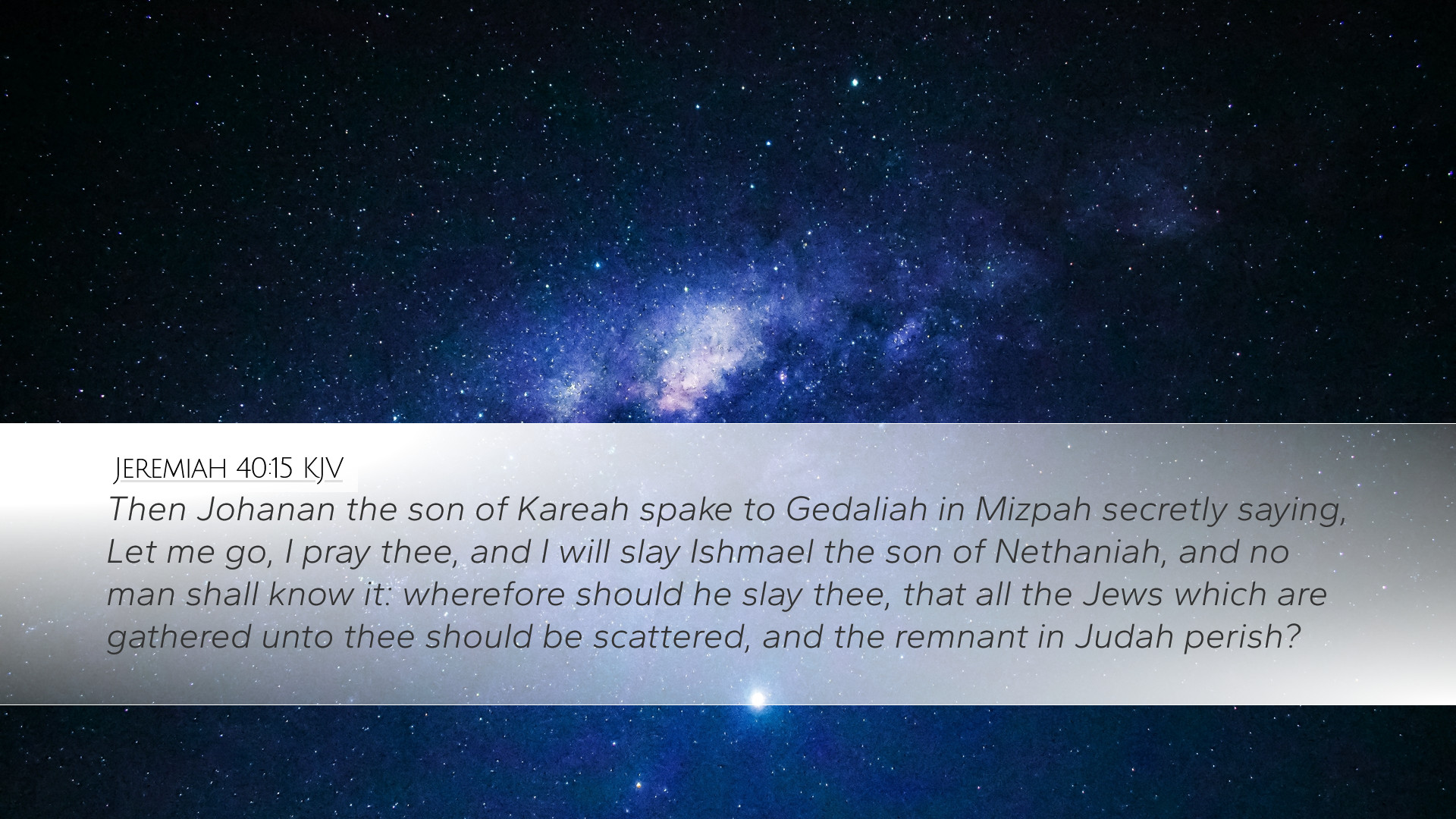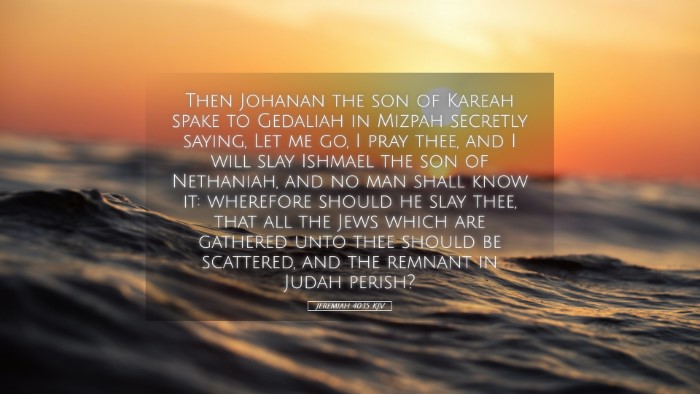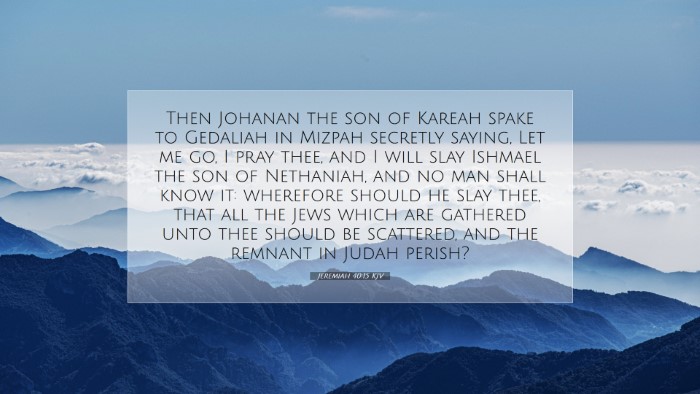Commentary on Jeremiah 40:15
Bible Verse: "Then Johanan the son of Kareah spake to Gedaliah in Mizpah, saying, Let me go, I pray thee, and smite Ishmael the son of Nethaniah, and let not him kill thee. Why should he cause the remnant of Israel to be destroyed?" (Jeremiah 40:15 KJV)
Introduction
This verse situates itself in the historical context of the aftermath of the Babylonian exile, depicting a critical moment for the remnants of Israel and their leadership under Gedaliah. The tension between different factions during this fragile time is palpable, as seen in Johanan’s urgent plea to Gedaliah. This commentary synthesizes insights from several public domain sources to aid pastors, students, theologians, and Bible scholars in understanding the significance and implications of this scripture.
Contextual Analysis
Jeremiah 40 describes events shortly after the fall of Jerusalem, when Gedaliah was appointed governor over the people left in Judea. His leadership symbolizes hope for a reconciling effort among the remnants. However, the political dynamics are fraught with peril, and the looming threat posed by Ishmael indicates deep-seated struggles within Israel itself.
Character Studies
- Gedaliah: Gedaliah is portrayed as a well-meaning leader, seeking to rebuild and encourage the remnants of Judah after their traumatic defeat. His character represents a bridge between the old ways and the new reality imposed by Babylon.
- Johanan: As a military leader, Johanan emerges as a protective figure, advocating for the preservation of Gedaliah and, by extension, the people of Judah. His vigilance reveals the deeper fears and complexities surrounding leadership in a post-exilic society.
- Ishmael: Ishmael, by rising in opposition, embodies the threat of internal discord and treachery. His motivations can be seen as rooted in personal ambition or vengeance, reflective of the tumultuous nature of the times.
Theological Implications
This verse raises critical theological questions regarding divine sovereignty and human agency. The tension between God’s promises and human failures is evident as Israel grapples with trust in their leaders amidst potential betrayals.
Divine Protection and Human Responsibility
The request made by Johanan to Gedaliah is loaded with implications about the faithfulness of God’s protection. Albert Barnes emphasizes the necessity of remaining vigilant and proactive in safeguarding God’s people. While God is sovereign and in control, He often utilizes human means—such as Johanan’s intervention—to fulfill His protective promises.
The Role of Leadership
Gedaliah’s position as governor provides a practical model for leadership in times of crisis. Matthew Henry points out that leaders must be aware of the dangers surrounding their role, exemplifying diligence and wisdom. Johanan’s warning becomes a crucial moment of accountability, inviting a discussion on the weight of leadership responsibilities.
Lessons for Today
The contemporary church can draw several lessons from this interaction between Johanan and Gedaliah:
- Vigilance in Leadership: Modern leaders must remain alert to the dangers that may arise from within their congregations. Just as Johanan sought to confront a threat, church leaders must actively seek to protect their communities from potential harm.
- Collaboration and Trust: Gedaliah’s role emphasizes the importance of collaboration within leadership. Trust among leaders is critical for fostering a safe and secure environment for followers.
- Faithfulness amidst Fear: The backdrop of this scripture is one of fear and uncertainty. The modern believer is encouraged to trust in God’s providence while also acting in faith to create a resilient community.
Conclusion
Jeremiah 40:15 serves as a poignant reminder of the complexities and challenges faced by God’s people during tumultuous times. The insights from public domain commentaries enrich our understanding, encouraging theological reflection and practical application for today’s leaders and congregations. The lesson of vigilance, the need for collaborative leadership, and the affirmation of God’s protection resonate powerfully in our current context, reminding us that faith and action must go hand in hand.


